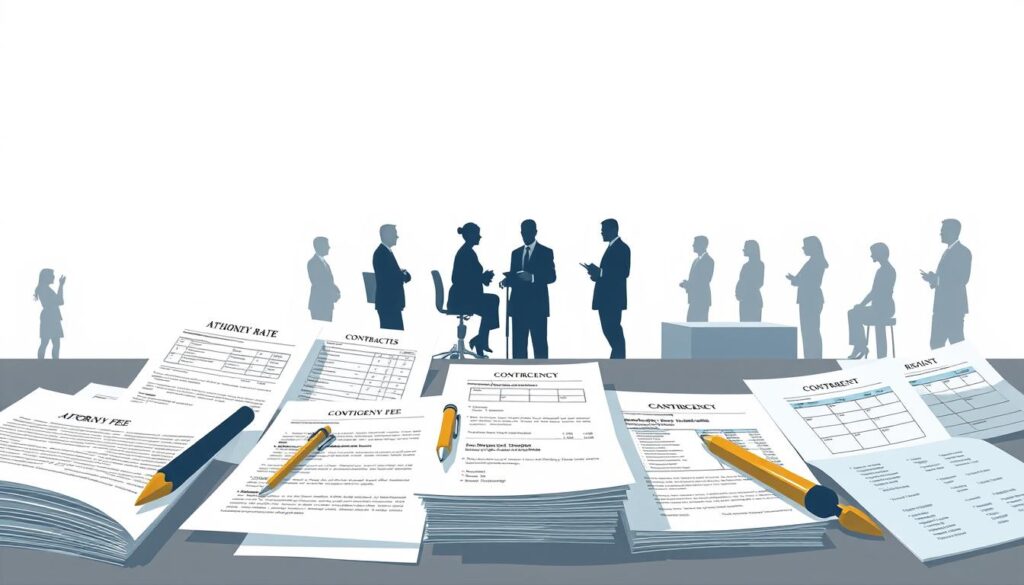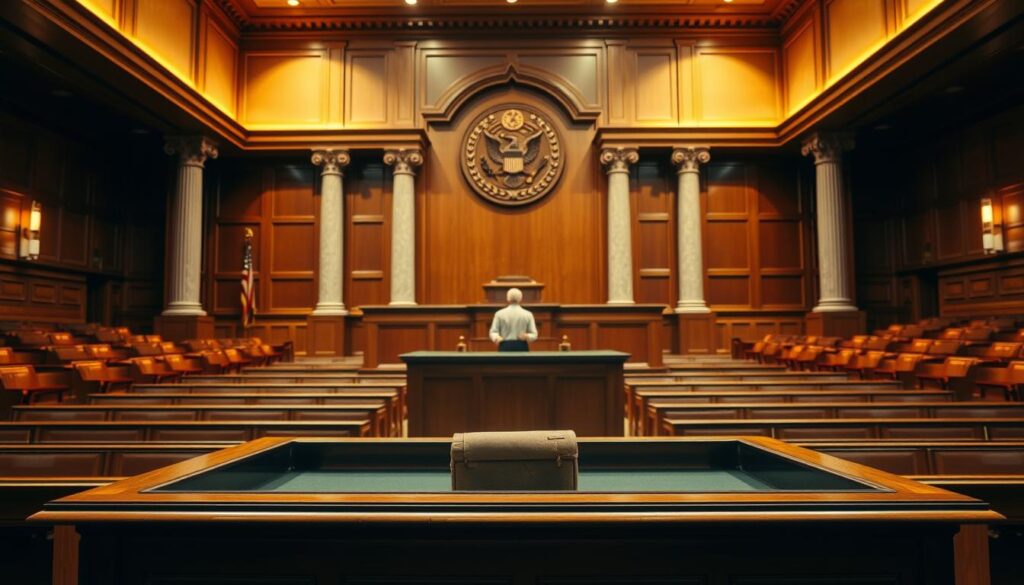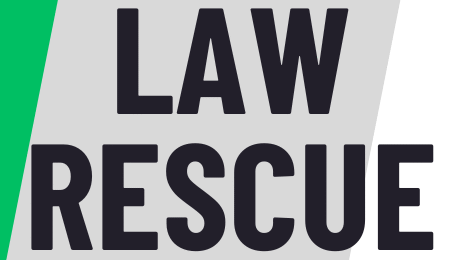Did you know the right legal counsel can change your case’s outcome? West Coast Trial Lawyers says an experienced lawyer is key to defend your rights and seek justice.
Finding the right lawyer can be tough, but it’s crucial. Your lawyer will be your voice, helping you through legal issues and fighting for what’s best for you.
With so much on the line, picking the right lawyer is a big decision. This article will give you 10 tips to help you choose wisely, making the process easier and more confident.
The American Legal System: What You Need to Know
Before picking a lawyer, it’s key to grasp the American legal system. The US legal setup is intricate, with both state and federal courts handling different cases.
Structure and Jurisdiction of US Courts
The US court system is organized in a clear hierarchy. You have lower courts, appellate courts, and supreme courts. Each court’s power varies, with some dealing with federal laws and others with state laws. Litigation specialists help clients by knowing how to work within these different areas.
- Federal courts handle cases involving federal laws and the Constitution.
- State courts deal with cases related to state laws and local ordinances.
State vs. Federal Legal Matters
Legal issues fall into two main categories: state and federal cases. State cases cover things like divorce, personal injury, and property disputes. On the other hand, federal cases include bankruptcy, intellectual property, and federal crimes. A law firm might focus on one or both types, offering legal services that fit the client’s needs.
It’s vital to figure out if your case falls under state or federal law. Knowing the US court system’s structure and jurisdiction helps you choose the right lawyer for your case.
When Do You Need a Lawyer in the United States?
Knowing when to get a legal advisor is key in the United States. The legal system is complex. A professional can greatly impact your case’s outcome.
Civil vs. Criminal Representation
Civil cases are disputes between people or groups. They often need a legal advocate to understand the law. Criminal cases, where the state prosecutes someone, require courtroom representation. Knowing your case type helps find the right lawyer.
| Case Type | Description | Legal Representation Needed |
|---|---|---|
| Civil | Disputes between individuals or organizations | Legal Advocate for negotiation or litigation |
| Criminal | State prosecution for a crime | Courtroom Representation for defense |
Personal vs. Business Legal Needs
Legal needs can be personal, like family law or personal injury. Or they can be business-related, like contract disputes. Knowing if your issue is personal or business helps find the right lawyer.
Situations That Always Require Legal Counsel
Some situations always need a lawyer, like being charged with a crime or being in a serious accident. A skilled legal advisor can protect your rights and interests.
Tip1: Identify Your Specific Legal Needs
Knowing what legal help you need is the first step. It helps you find a lawyer who fits your case. This way, you get the best help possible.
Assessing the Nature of Your Legal Issue
Think about your legal problem. What kind of issue do you have—is it family, employment, or personal injury? Knowing this helps you find the right lawyer. For example, a divorce case needs a family law expert.
Determining the Complexity of Your Case
How complex is your case? Look at the details and challenges. This helps you choose the right lawyer.
Simple vs. Complex Legal Matters
Simple issues might be drafting a will or an uncontested divorce. But complex cases have many parties, big assets, or serious claims. For example, a big business dispute needs a lawyer with corporate and litigation experience.
When to Handle Legal Issues Yourself
For simple issues, you might handle them yourself. Like a minor traffic ticket or a basic contract. But, complex issues need a lawyer’s help.
By knowing your legal needs and case details, you can choose the right lawyer. This first step is key to getting the right legal advice.
5 Mistakes to Avoid When Hiring a Personal Injury Lawyer in Grand Prairie TX
Tip2: Research Different Types of Lawyers
Choosing the right attorney is crucial. The US legal system is complex, with many lawyer specializations. It’s important to know the different types of lawyers to find the right one for you.
Common Legal Specializations in the US
The legal profession in the United States is diverse. Attorneys specialize in various areas of law. Here are some common specializations:
Criminal Defense Attorneys
Criminal defense attorneys defend individuals and organizations charged with crimes. They handle cases from misdemeanors to serious felonies.
Family Law Attorneys
Family law attorneys handle legal issues related to family relationships. This includes divorce, child custody, adoption, and domestic violence.
Personal Injury Lawyers
Personal injury lawyers help clients who have been injured due to someone else’s negligence. They seek compensation for medical expenses, lost wages, and pain and suffering.
Corporate and Business Attorneys
Corporate and business attorneys provide legal services to businesses. They handle contract negotiation, mergers and acquisitions, compliance, and intellectual property protection.
Matching Your Needs to the Right Specialist
Once you know the different legal specializations, you can find the right specialist for your needs. Think about the nature of your legal issue and the complexity of your case. This will help you choose the best lawyer for it.
| Legal Issue | Recommended Lawyer Specialization |
|---|---|
| Criminal Charges | Criminal Defense Attorney |
| Divorce or Child Custody | Family Law Attorney |
| Personal Injury | Personal Injury Lawyer |
| Business Transactions | Corporate and Business Attorney |
By researching different types of lawyers and understanding their specializations, you can make an informed decision. This will help you choose the right litigation specialist for your legal needs.
Tip3: Check Credentials and Experience of Your Potential Lawyer
When looking for a lawyer, it’s key to check their credentials and experience. This ensures you’re getting a skilled legal advocate. This step is crucial for a good decision that can greatly affect your case’s outcome.
Verifying Bar Association Membership and Licensing
First, make sure your lawyer is a member of the state bar association and is licensed to practice in your state. You can find this info on the state bar association’s website. Also, check if they’ve faced any disciplinary actions.
- Check the state bar association website for membership and licensing status.
- Look for any history of disciplinary actions.
Evaluating Years of Practice and Specialization
Then, look at the lawyer’s years of practice and their specialty. A lawyer with lots of experience in your legal issue can help more. West Coast Trial Lawyers say experience and specialization are key for complex cases.
See how long they’ve been practicing and if their specialty fits your needs.
Reviewing Case History and Success Rates
Looking at a lawyer’s case history and success rates can show their skill and effectiveness. Find out about cases like yours and their results. This helps you understand their approach and chances of success.
- Research their past cases and outcomes.
- Ask about their success rates in cases similar to yours.
By carefully checking a lawyer’s credentials and experience, you can make a better choice. This increases the chance of a positive outcome in your case.
Tip4: Consider the Lawyer’s Reputation and Standing
Before you hire a lawyer, it’s key to check their reputation and standing in the legal world. A lawyer’s reputation can greatly affect your case’s outcome. So, knowing their reputation in the legal community is crucial.
Reading Client Testimonials and Reviews
Reading what past clients say is a great way to understand a lawyer’s reputation. These testimonials give you a real look at their professionalism, how well they communicate, and their success in court. Look for reviews on different sites to get a full picture.
- Check online review sites such as Avvo or Martindale-Hubbell.
- Ask for references during your first meeting.
- Notice the overall tone and common themes in the reviews.
Checking for Disciplinary Actions or Complaints
It’s also important to see if there have been any disciplinary actions or complaints against the lawyer. You can find this info on your state’s bar association website. Knowing about any past issues can help you make a better choice.
How to Verify a Lawyer’s Standing with the Bar
To check a lawyer’s standing, visit your state’s bar association website and search for their name. You’ll find info on their licensure, any disciplinary actions, and their history with the bar.
Understanding Malpractice Claims
Malpractice claims against a lawyer are a big warning sign. Look into any past claims to understand the allegations and how they were handled. This can tell you a lot about the lawyer’s professionalism and skill.
Tip5: Evaluate Communication Skills and Availability
Choosing a lawyer means looking at their communication skills and how available they are. Good communication is key to a successful lawyer-client relationship. It helps you stay updated and make smart decisions about your case.
Assessing Responsiveness and Accessibility
A good lawyer answers your calls or emails fast and keeps you in the loop. They should be easy to reach when you need them. Pay attention to how they respond during your first meetings. For example, West Coast Trial Lawyers values quick and clear communication.
Ask yourself, how fast do they reply to your questions? Are they there for you when you need them, even outside meetings?
Understanding Their Communication Style
It’s important to know how a lawyer communicates. Some are direct and to the point, while others explain things in more detail. You should find a lawyer whose style you like.
Ask potential lawyers about their communication style. How do they keep you updated on your case? By understanding their communication style, you can have a better experience with your legal advisor or law firm.
Tip6: Understand Legal Fee Structures and Payment Options
Before you hire a lawyer, it’s key to know the different legal fee setups. Grasping these can help you control your legal costs and prevent surprise expenses.
Common Fee Arrangements in US Legal Practice
In the US, lawyers use several fee plans, each with its own pros and cons. The main ones are hourly rates, flat fees, contingency fees, and retainer agreements.
Hourly Rates vs. Flat Fees
Hourly rates depend on how much time your lawyer spends on your case. Flat fees, on the other hand, are a single payment for a certain service. Hourly rates are good for complex cases needing lots of legal work. Flat fees are clearer for simple legal issues.
Contingency Fees Explained
Contingency fees mean you only pay if your lawyer wins your case. This is common in personal injury and other lawsuits where the plaintiff seeks damages.
Retainer Agreements
A retainer agreement lets you pay a regular fee for legal services. It’s great for businesses or individuals with ongoing legal needs.
Negotiating Fees and Payment Plans
Don’t be shy about talking about fees and payment plans with your lawyer. Many are open to finding a payment plan that works for both of you. Make sure to share your budget and what you expect.

Understanding legal fee structures and negotiating well can make sure your lawyer is both skilled and affordable.
Tip7: Prepare for Your Initial Consultation
Your first meeting with a lawyer is very important. Being ready is crucial for a good start. This meeting lets you see if the legal services fit your needs and if the legal advisor is a good match.
To get the most from this meeting, prepare well. Have the right questions and documents ready.
Questions to Ask During Your First Meeting
Asking the right questions during your first meeting is key. It helps you understand the lawyer’s skills and how they plan to help you. Ask about their experience with similar cases, their strategy, and how they keep clients informed.
- What experience do you have with cases like mine?
- How will you communicate with me throughout my case?
- What are the potential outcomes for my case?
Documents to Bring to Your Consultation
Bring all important documents to your meeting. This helps the lawyer understand your situation better. Include contracts, letters, court papers, or any other case-related documents.
Being ready with questions and documents makes your first meeting productive. It’s a big step towards finding the right legal representation for you.
Tip8: Trust Your Instincts When Choosing a Lawyer
Finding the right lawyer is more than just looking at their credentials. It’s also about trusting your gut feeling. When you’ve narrowed down your options, think about how well you connect with your potential attorney.
The Importance of Personal Compatibility
Feeling comfortable with your lawyer is key for a good working relationship. You should feel at ease talking about your case. And you should be sure your lawyer can represent you well.
Red Flags to Watch Out For
When talking to a potential lawyer, watch out for red flags. These could mean there’s a problem. Here are some to look out for:
- Communication Issues: If your lawyer doesn’t respond quickly or explain things clearly, it might be a sign of trouble.
- Unrealistic Promises: Be cautious of lawyers who promise specific results. This could mean they’re overconfident or dishonest.
- Ethical Concerns: Any behavior that seems wrong or unprofessional should make you question the lawyer’s integrity.
Listening to your instincts when picking a lawyer can greatly impact your legal case. By focusing on personal compatibility and avoiding red flags, you can make a better choice.
Tip9: Consider the Size and Resources of the Law Firm
When choosing a lawyer, think about the law firm’s size and resources too. The type of case you have can help decide if a small or big law firm is better.
Solo Practitioners vs. Large Law Firms
Solo lawyers give you personal service and might cost less. They’re great for simple cases or if you’re on a tight budget. But, big law firms have more to offer. They have teams of litigation specialists and access to lots of legal info, which helps with tough cases needing strong courtroom representation.
Matching Firm Size to Your Case Complexity
If your case is simple, a solo lawyer might be enough. But, for cases with many parties, complex laws, or big money at stake, a bigger firm is better. Think about what your case needs when picking a law firm size.
In the end, the law firm’s size and resources should match your case’s needs. This way, you get the best help possible.
Tip10: Evaluate the Lawyer’s Trial Experience
Choosing the right lawyer is key. Their courtroom skills can greatly affect your case’s outcome. West Coast Trial Lawyers highlights the need for a lawyer’s trial experience, especially for court cases.

The Importance of Courtroom Experience
A lawyer with lots of courtroom experience is a big plus. They know how to prepare your case and deal with the opposing counsel. They can present your case well, question witnesses, and argue your side strongly.
Also, an experienced lawyer knows the judges and prosecutors. This can help in negotiations and in court. Their experience can make the legal process smoother, reducing your stress and uncertainty.
Settlement Skills vs. Litigation Abilities
It’s important to know if a lawyer is good at settling cases or at going to trial. If you want to avoid trial, a settlement expert might be best. But, if trial is likely, you need a lawyer who’s great at it.
Ideally, your lawyer should be good at both. They should be able to negotiate or go to court, depending on what’s best for you. Look at their strengths in both areas to find the right lawyer for you.
How to Find Potential Lawyers in Your Area
Finding the right lawyer can seem hard, but there are ways to find good ones near you. Start by looking at different resources that can help you find qualified lawyers.
Online Resources and Directories
Online directories are a great place to start. Use search engines to find lawyers in your area. You can filter by specialty, location, and more. Some top sites include:
- Avvo
- Martindale-Hubbell
- Justia
These sites have lawyer profiles. They show their experience, what they specialize in, and what clients say about them.
Referrals from Friends and Family
Getting a referral from someone you trust is a good way to find a lawyer. Ask friends, family, or coworkers for suggestions. They can tell you about a lawyer’s skills, how well they communicate, and how effective they are.
Bar Association Referral Services
Bar associations also offer referral services. They can match you with lawyers who fit your needs. You’ll get a chance to talk to them first. Contact your local or state bar association to find out more.
Essential Questions to Ask Before Hiring a Lawyer
Before you hire a lawyer, it’s key to ask the right questions. This helps you understand their skills, how they’ll handle your case, and how they can help you. West Coast Trial Lawyers says asking the right questions is crucial for your legal journey.
About Their Experience and Expertise
Knowing a lawyer’s experience and expertise is important. You should ask about their background in cases like yours. Questions to ask include: How long have they been practicing law? What is their success rate in cases like yours? Have they worked with clients with needs similar to yours?
If you’re looking for a litigation specialist, ask about their courtroom experience. This is important.
About Case Management and Strategy
It’s vital to know how a lawyer will manage your case and their strategy. Ask them to explain their approach, including how they’ll keep you updated. Questions might include: Who will handle your case? How will they work with other experts or lawyers if needed? What is their strategy for your case, and how flexible are they in adapting to changes?
About Fees and Billing Practices
Understanding the cost of legal services is crucial. Ask about their fee structure, including hourly or flat fees, and what’s included in their billing. It’s also wise to ask about any additional costs or expenses you might incur during the legal process. Knowing this upfront can help avoid unexpected expenses later.
Understanding the Client-Lawyer Relationship
A strong client-lawyer relationship is built on trust, communication, and mutual understanding. When you hire a lawyer, you’re not just paying for their expertise. You’re entering into a partnership that requires cooperation and clarity.
Your Rights as a Client in the US Legal System
As a client, you have certain rights that are fundamental to the client-lawyer relationship. These include the right to receive competent representation, the right to confidentiality, and the right to make informed decisions about your case.
- The right to be informed about the progress of your case
- The right to confidentiality and attorney-client privilege
- The right to discharge your lawyer if you’re not satisfied
Your Lawyer’s Professional Obligations
Your lawyer has professional obligations to you, the client, which are governed by ethical rules and standards. Understanding these obligations can help you navigate your relationship with your lawyer more effectively.
Attorney-Client Privilege
Attorney-client privilege is a fundamental aspect of the client-lawyer relationship, ensuring that your communications with your lawyer remain confidential. This privilege encourages open and honest communication, which is essential for effective representation.
Fiduciary Responsibility
Your lawyer has a fiduciary duty to act in your best interests, putting your needs above their own. This includes managing your case diligently, avoiding conflicts of interest, and being transparent about their fees and billing practices.
| Client Rights | Lawyer Obligations |
|---|---|
| Receive competent representation | Provide diligent and competent service |
| Confidentiality and privacy | Maintain confidentiality and attorney-client privilege |
| Make informed decisions about your case | Keep you informed and involved in case decisions |
Understanding your rights and your lawyer’s obligations is key to a successful client-lawyer relationship. By being informed and proactive, you can ensure that your legal needs are met effectively.
Conclusion: Making Your Final Decision
Choosing the right lawyer is very important. It can greatly affect the outcome of your legal issue. You’ve learned key factors to consider, like your legal needs and the lawyer’s experience.
West Coast Trial Lawyers stresses the need for a well-informed choice. By following the tips, you can find a lawyer who fits your case. Look at their resources, trial experience, and how they communicate to see if they’re right for you.
You now have the tools to make a smart choice. Take your time and ask questions. The right lawyer will guide and represent you well, helping you achieve success.
9 Common Mistakes to Avoid When Searching for a Business Attorney Near You
Frequently Asked Questions
What is the significance of choosing the appropriate attorney for my legal requirements?
An adept attorney can significantly influence the outcome of your case. They provide proficient advocacy and counsel. This guarantees the protection of your rights and the representation of your interests.
How can I ascertain my particular legal requirements?
To ascertain your legal requirements, first comprehend the essence of your difficulty. Subsequently, assess the complexity of your situation. Finally, determine whether you require legal counsel for personal or corporate matters.
What are the many categories of lawyers, and how can I align my requirements with the appropriate specialist?
Numerous legal specializations exist, such as criminal defense and family law. To identify the appropriate attorney, consider the particular domain of your case. Subsequently, seek an attorney specializing in that domain.
What is the procedure for verifying the qualifications and experience of a prospective attorney?
To ascertain a lawyer’s qualifications, confirm their membership in the bar association. Examine their years of experience and case history. Additionally, assess their success rates.
What factors should I assess while appraising a lawyer’s reputation and status?
Assess a lawyer’s reputation by examining client testimonies. Investigate any disciplinary measures or grievances. Additionally, comprehend any allegations of malpractice.
What methods may I employ to evaluate a lawyer’s communication proficiency and accessibility?
Evaluate a lawyer’s communication proficiency by examining their responsiveness. Comprehend their mode of communication. Additionally, take into account their availability.
What are the various legal fee structures and payment alternatives available?
Legal costs may be charged on an hourly, flat-rate, or contingency basis. Comprehending these expenses is essential. It may be necessary to discuss fees and payment arrangements.
How do I prepare for the initial consultation with a lawyer?
Prepare questions in advance for the initial consultation. Collect pertinent documents. Prepare to articulate the particulars of your situation.
What are the warning signs to consider while selecting a lawyer?
Indicators of concern encompass inadequate communication and implausible assurances. Ethical concerns are also important. Trust your intuition and evaluate personal compatibility.
Should I choose a solo practitioner or a large law firm?
The decision is contingent upon the complexity of your situation. Consider the resources and expertise needed for your case.
How do I evaluate a lawyer’s trial experience?
To evaluate a lawyer’s trial experience, look at their courtroom experience. Consider their settlement skills and litigation abilities. These are key for effective representation.
Where can I find potential lawyers in my area?
You can find lawyers online, through referrals, or bar association services.
What are the essential questions to ask before hiring a lawyer?
Ask about their experience, case management, and billing practices. These questions help ensure you find the right lawyer.
What are my rights as a client in the US legal system?
As a client, you have the right to effective representation and confidentiality. You also have the right to communicate with your lawyer. Understanding these rights is crucial.
What should I consider when making my final decision on choosing a lawyer?
Consider the tips provided and assess your specific needs. Evaluate the lawyers you’ve consulted. Make an informed decision based on this.

